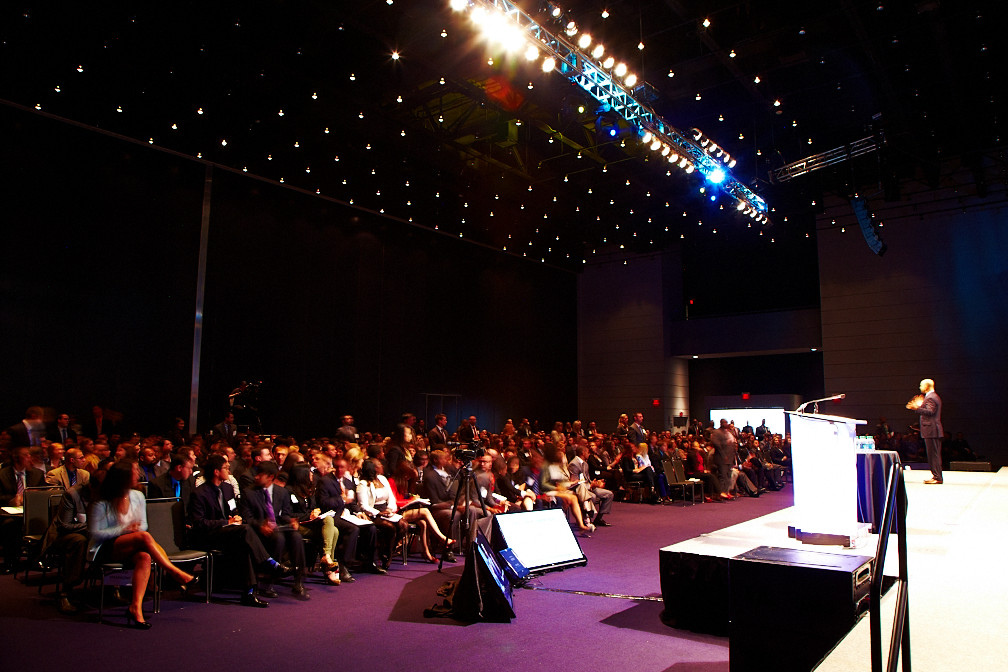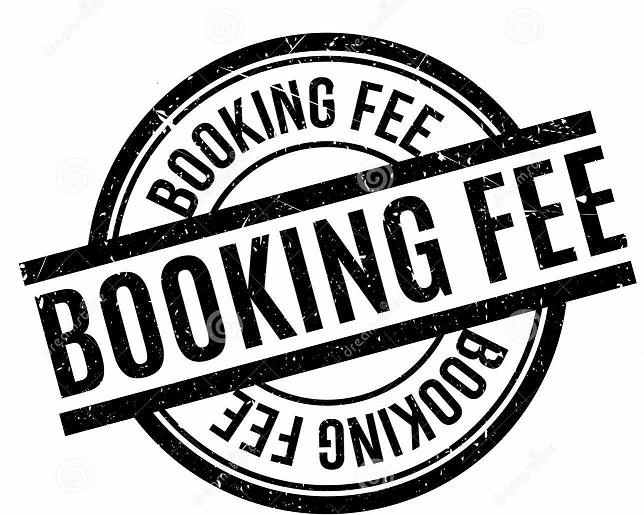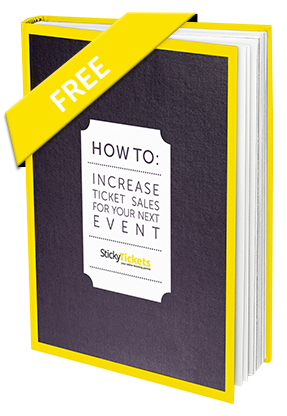Selling Tickets To An Event? How to Avoid Paying Hefty Booking Fees

Organizing an event is no small feat. From venue selection and catering to securing speakers and advertising, there are many moving parts to consider when planning an event. One of the most ultra-critical aspects of event planning is selling tickets; selling them online through an event ticketing platform is the easiest way. This approach has become increasingly famous in recent years due to its convenience and cost-effectiveness. It is also a great way to reach out to a larger audience and maximise the sales potential of your event.
When working with an event ticketing platform, you will encounter a “booking fees” charge. Most online event ticketing companies have expensive or inconsistent booking fees. This can be a massive drain on your profits and make it difficult to break even, let alone make any profit. But with the right tactics, you can cope with these fees and ensure you get the most out of your ticket sales.
In this blog, we’ll discuss how to sell tickets online without incurring excessive booking fees and provide tips and tricks for maximizing your profits. We also discuss the qualities you need to check when selecting the most suitable platform for your event.
What Are Booking Fees?
The first step to dodging hefty booking fees is to know what they are and why they exist. Booking fees are charges that event ticketing companies impose on the event organisers to cover their costs and make a profit. These costs usually include the ticketing company’s administration costs, customer service costs, website maintenance fees, bank charges, and any costs incurred for handling your online payments.
Booking fees can vary from a few cents to several dollars and can make a significant difference in the overall cost of selling tickets online. They can be especially burdensome for event organisers who are already struggling to make a profit.

Leading event ticketing companies usually charge a booking fee that includes a percentage of the ticket price plus a fixed amount. For basic features, you can expect a rate of anywhere between 2% and 8%, plus a fixed fee – per ticket – plus around 50c to 1$ per ticket. And if you need specific features such as a more premium package – you can expect to pay between 5% and 10% per ticket, plus around 1-2$ per ticket. There also could be hidden fees or charges in the worst-case scenario. So, be sure to research and compare prices before committing to any particular platform.
If you’re looking for ways to deal with hefty booking fees, read on for some helpful tips.
Tips to Avoid Hefty Booking Fees
Now that you understand booking fees and why they exist, here are a few workarounds you can use to minimise your booking fees and maximise your profits.
Use a Low-Cost Ticketing Platform
The best way to avoid hefty booking fees is to shop around and compare the fees associated with different event ticketing platforms. Many event ticketing companies charge additional fees, at the end or extra charges for special services that you may not really need. Remember to ensure you’re getting the features or services you only need to make your ticket sales up and running. They include services like customer support, secure payment processing, and scalability. It is also essential to read the fine print and understand the terms and conditions associated with each platform.
Group Tickets
You can offset booking fees by working on bundle tickets with other products or services, such as merchandise, food, and drinks. This method works best when you have a variety of different items that you can bundle together. For example, you could bundle tickets with merchandise like shirts, hats, or posters. Remember to offer an excellent deal to your customers and include items that will appeal to your target audience. Here you need to ensure that the total cost is lower than the cost of buying these items separately.

We at Sticky Tickets offer a cheaper booking fee by group tickets together, such as bundle 5 x tickets and 10 x tickets into one ticket type. Let’s dig a little deeper.
Using Sticky Tickets to sell raffle tickets is one of our many cost-effective features. You can use our ‘group ticket’ feature here, as it will significantly reduce the booking fees charged.
Say you want to sell $2.00 priced raffle tickets.
- If you create a single ticket at $2, the booking fee on this ticket will be $1.00 for each ticket purchased but
- If you create bundles (group tickets), e.g., 10 x $2.00 tickets at $20, the booking fee will be $1.50 (the ticket purchaser would save $10 in booking fees if they were to buy 10 x single $2.00 tickets) A group ticket of 10 will still issue out 10 tickets.
Additionally, some platforms may offer discounts for bulk purchases or early ticket sales. Don’t be afraid to ask for bulk pricing or group tickets.
Use Social Media
Social media is a proven way to attract customers and sell tickets without paying hefty booking fees. You can use social media to advertise your event and offer discounts and promotions. For example, you could offer discounts for tickets purchased through your social media pages or exclusive deals to followers of your page. This can help you draw more customers to your event without breaking the bank.

Pass Your Booking Fee
You could also consider passing on the booking fees to attendees as a separate charge, but make sure to communicate this clearly to them in advance. That way, your attendees will feel safe and confident when they reach the final payment page, and suddenly they have to pay more than they thought.
How Do I Find An Affordable Event Ticketing Platform
There are several specific factors to consider when choosing an event ticketing platform. Along with shopping around and comparing fees, there are different methods you can use to find the most cost-effective and easy-to-use platform for your ticket sales.
The first is – as always – the fees associated with the platform. Comparing the fees of different platforms is integral in finding one that walks into your event budget. Make sure to compare the fees across several platforms, and to check out any discounts or promo codes that may be available. A point to ponder here is that not all fees imposed by platforms are given in detail. Their billing concepts differ and sometimes are not crystal-clear as you would expect them to be.
This is where you can put Sticky Tickets under a microscope. One of the well-liked features among Sticky Tickets’ customer base is our pricing structure and transparency. Our booking fees are all-inclusive, which includes our service fee + all merchant and transaction fees, communicated to you clearly without any hidden fees.
Second comes the rollercoaster ride – customer support and service. Let’s take a look at how the most challenging element in any business pans out here.
Almost always we see that cheaper booking fees have a catch in the end. Perhaps you as an event organiser have to make do with poor customer support – lacking response or not responsive whatsoever, taking hours or days to reply or even sorting out your queries haphazardly. Then there’s the severe concern of not maintaining the best data security protocols and running outdated technology that leads to many snags. For example, there could be lengthy website downtime or faulty integration with your apps or features. These interrupt event organisers and ticket sales, causing frustration that could have easily been avoided.
Sticky Tickets triumphs here. Our customer support and service is the most sought-after feature and what sets us apart from the competition, a major factor of customer satisfaction and retention.
So, keep these two nodes in the back of your mind when researching – that in the event ticketing industry, cheap is not the best.
In a nutshell, the following recommendations can guide you in choosing the right platform for your event:
- Compare features: Compare the features of different ticketing platforms to find the best fit for your event.
- Read the fine print: Be sure to read the terms and conditions of each platform to understand the fees and other details. This can help you escape any surprises down the line and help you get the best agreement possible.
- Test the platform: Test the platform to make sure it meets your needs and is user-friendly.
- Check reviews and ask questions: Read reviews to get an idea of what other event organisers think of the platform – this is one of the most direct paths to select the best event ticketing platform. Look at what the reviews and feedback indicated about customer service and support. They’ll surprise you.
To conclude,
Selling your event tickets via a ticketing platform is a speedy, convenient and cost-effective way to take your event to the public. It allows you as an event organiser to reach a wider audience and easily keep track of who is attending your event and how many tickets they’ve purchased.
Remember, booking fees are just one area to consider when organising an event. It’s crucial to weigh the rate of booking fees against the customer support, convenience and security offered by different event ticketing companies.
Whether your event is big or small, corporate or charity, free or paid, you can list, promote, sell tickets and manage your event easily, all in one place with peace of mind, visit our website to find out more. Sticky Tickets



